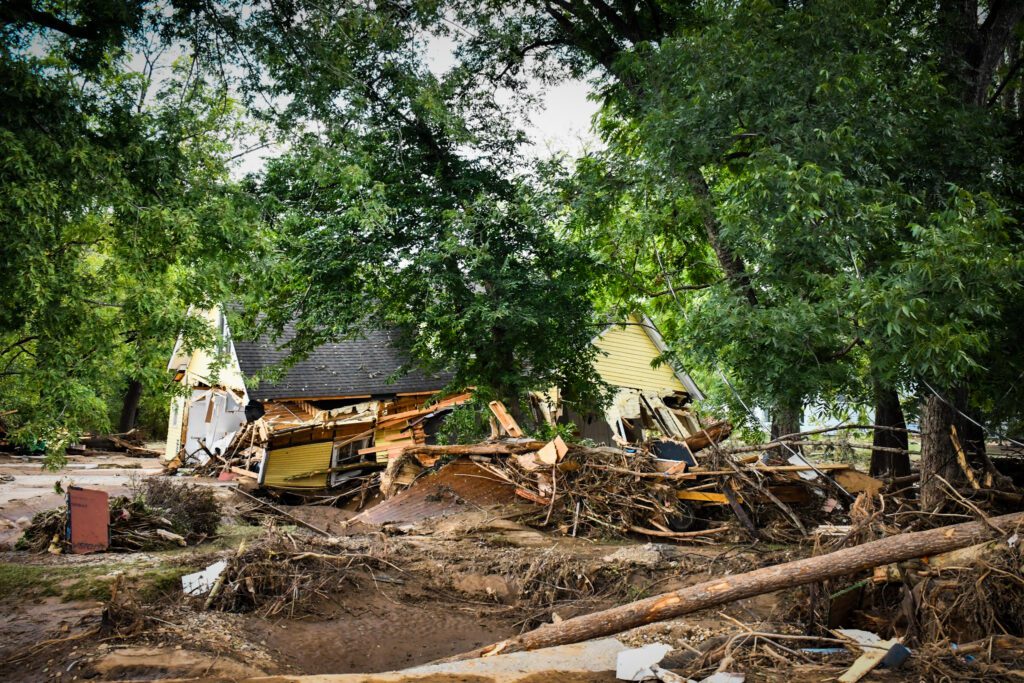We are behind Western North Carolina now and in the months ahead.
Early Bird readers, hello again. Newcomers, welcome! If you were forwarded this email, you can sign up here to receive it every two weeks, and join our conversation on issues facing North Carolina’s young children and those who support them. If you’re already a subscriber, please help us reach more people by sharing this with your friends and co-workers interested in early childhood education.

EdNC is heartbroken by Hurricane Helene’s devastation across Western North Carolina and beyond. As an 828 native myself (Hickory), I’ve spent this week, like many of you, frantically checking news and reaching out to friends. I’ve also spoken with early childhood leaders and providers beginning to assess damage and start the recovery process.
Alissa Rhodes, who closed her family child care home in Swannanoa in July, shared her story with me Tuesday. She and her husband watched as their community was wrecked. Her home, high on a hill, survived. She fled to her sister’s house in Maryland with her children.
“People were trapped in their homes,” Rhodes said. “My husband had to save an elderly couple in the neighborhood next door when a landslide hit.”
Rhodes is particularly worried about her early childhood colleagues, many of whom were already struggling to stay open before the storm. In the 25 counties impacted by Hurricane Helene, as of Wednesday, Oct. 2, 300 programs were open, 332 were unable to reach, 173 were operational but closed, and 13 had damage that will prevent opening according to a Department of Health and Human Services spokesperson.
“We are in crisis, and I’m worried what kind of care options we are going to have in the western part of the state — if it’s going to be existent,” she said.
Go here for information on fatalities, search and rescue operations, the distribution of food, water, and supplies, local spots to access Wi-Fi, how to report a missing loved one, how to request federal assistance, and how to donate or volunteer.
Scroll to the bottom of this email for more resources on supplies, free child care, recovery funds, and space to process trauma.
Like in so many emergencies we’ve seen over the last five years, early care and learning plays a critical role in communities’ survival — and in the well-being of our children. Thank you for all you are doing. Stay safe.
More from EdNC on early childhood
Western N.C. child care programs, ‘already in a fragile state,’ hit by Helene
Update, Oct. 3 at 4:00 pm: Out of the 818 licensed child care programs in the region impacted by Hurricane...EdExplainer | How babies' brains develop
When babies are born, their brains contain billions of neurons. But how those neurons interact — and what they can...Perspective | A shift in literacy: A first-grade teacher’s journey
In August 2021, Charlotte-Mecklenburg Schools (CMS) embarked on a new journey rooted in the science of reading, a research base...Comprehensive update on rescue, relief, and recovery in western North Carolina
Yesterday, the office of Gov. Roy Cooper provided a comprehensive update on rescue, relief, and recovery in western North Carolina...An early look at the impact of the hurricane on community colleges, including how you can help
“Hurricane Helene has left western North Carolina’s community colleges and their communities reeling,” says this press release from the N.C....Federal disaster unemployment assistance is available in 25 counties following Hurricane Helene
Following a federal disaster declaration resulting from the devasting impacts from Hurricane Helene, 25 counties and the Qualla Boundary have...The big picture for little kids
News & Research
-
How you can help women, children and LGBTQ+ people impacted by Hurricane Helene - From The 19th News
-
In the wake of deadly Helene, western NC thirsts for water - From NC Health News
-
A Disaster No One Saw Coming - From The Assembly
-
U.S. ‘Catastrophically Wrong’ to Separate Early Child Care from Education - From The 74 Million
-
Moving from a ‘parents’ bill of rights’ to a cross-partisan policy agenda to better support parents - From The Brookings Institution
-
States are turning to employers to boost child care benefits - From The Hechinger Report
-
On Child Care, Vance Tests a Talking Point Democrats Also Embrace - From The New York Times
Taking flight! Opportunities to spread your wings
-
High Country Hurricane Helene Resources - From The Children's Council of Watauga
The Children’s Council of Watauga has information on where to find local supplies, free child care options, and opportunities to donate supplies/funds or volunteer.
-
Listening Circles for Affected Residents - From Resources for Resilience
Each day from noon to 1 pm through Oct. 18, find virtual community to help process trauma and stress from the hurricane.
From the organizer: “Big events can hit us hard and affect us in many ways. Listening Circles help us name what is most difficult about them and practice tools that can help with the stress, right now.
If you are feeling overwhelmed, anxious, or upset; if you saw or responded to something hard; or if you are looking to connect with others in the community, join us online as we lean on one another and highlight what is getting us through this difficult time.”
-
DPS Helene Info and Resources - From NC Department of Public Safety
This page has answers to FAQs, links to social media pages and resources by county, open shelters, help finding loved ones, and guidance to apply for assistance.
-
Disaster Resources and Engagement Opportunities - From NC Inclusive Disaster Recovery Network
This is a “living document for organizations serving historically under-resourced and marginalized communities in North Carolina.”
It is oragnized by MDC’s NC Inclusive Disaster Recovery Network, “a collaborative of public, non-profit, and faith-based organizations seeking avenues for community voice and equitable access to resources in our disaster recovery system.”
-
Disaster Relief Fund for Family Child Care - From Family Childcare & Center Enrichment Foundation
This relief fund is specifically for family child care educators in North Carolina impacted by Hurricane Helene.



